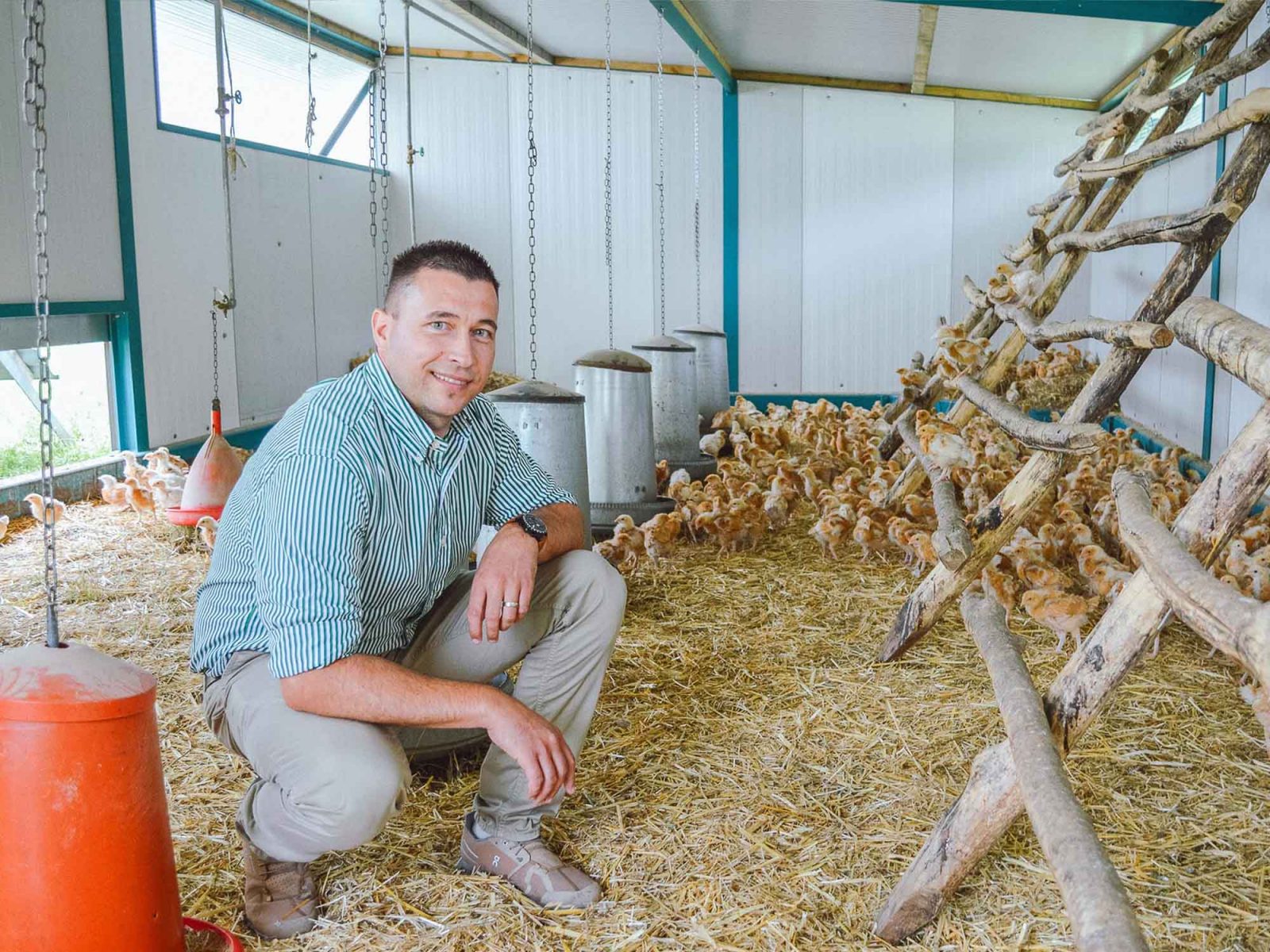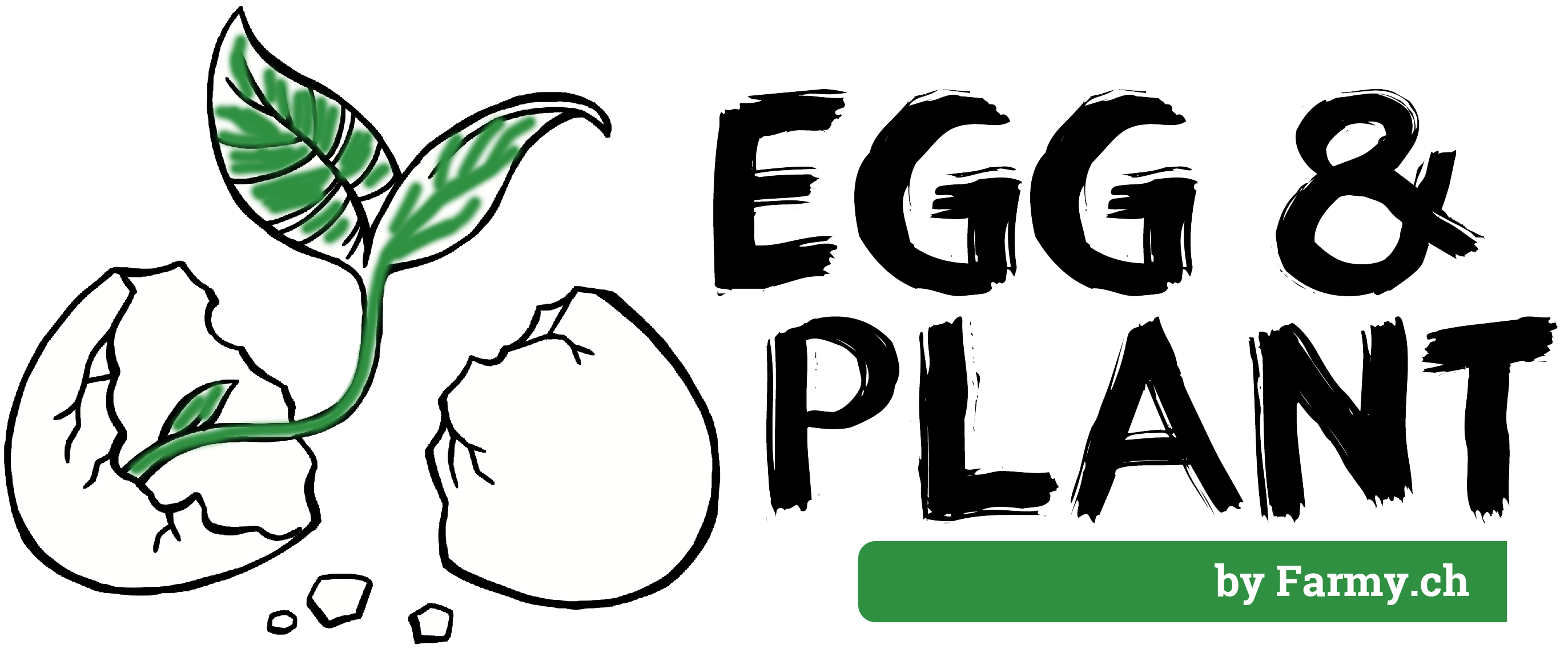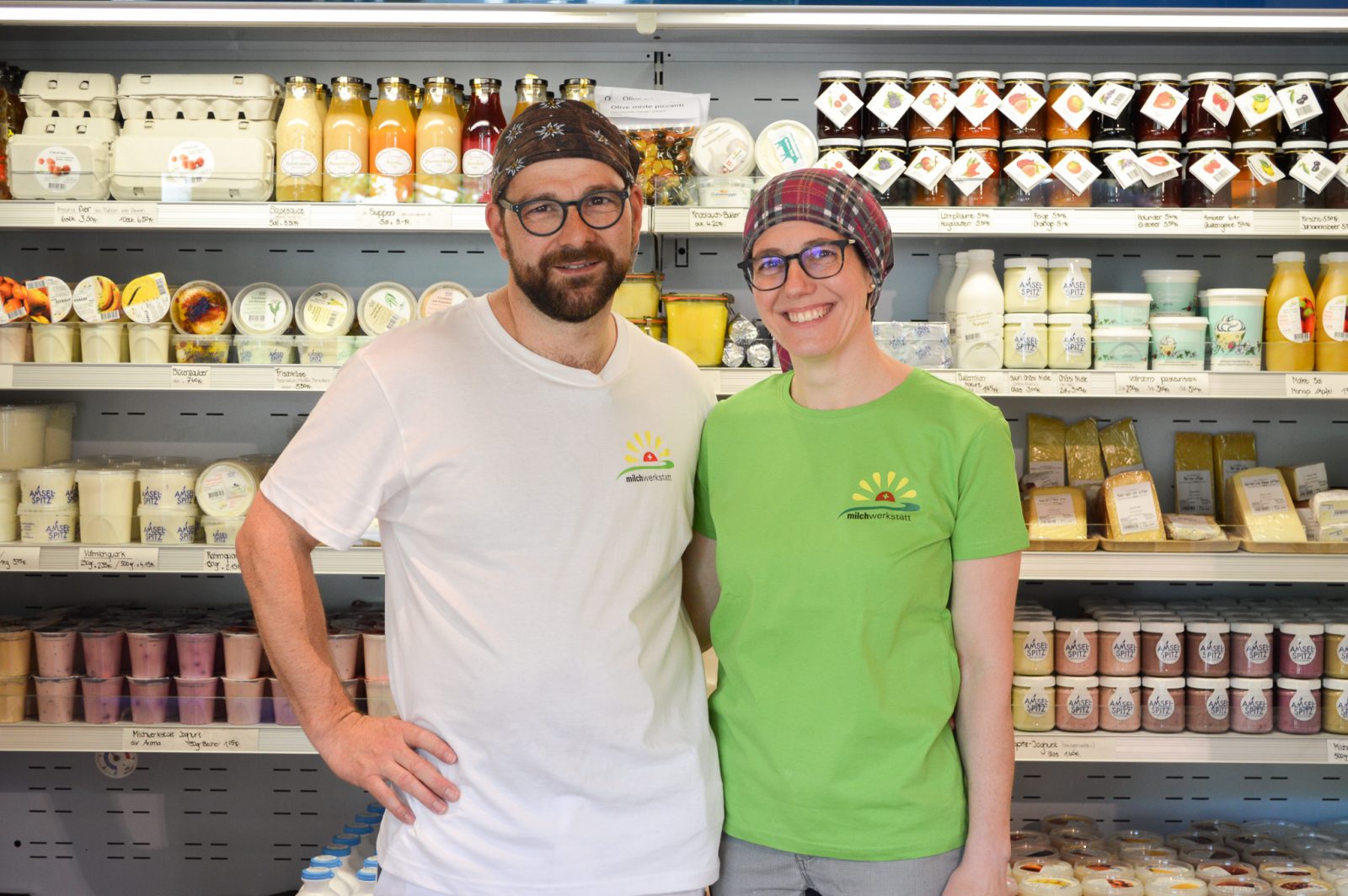
They are characterised by genuine butchery: in 2023, our producer BIOLogisch celebrates its 80th anniversary. It goes without saying that a lot has changed since the company was acquired in 1943 – but at its core, the promise has remained the same: animal welfare, respect, health and sustainability. Daniel Naumann, head of BIOLogisch, gave us a tour of the family business and introduced us to one of their suppliers, Wendelinhof.
The finest traditional butchery
It all began in 1943 when grandfather Ruedi acquired the inn and butcher’s shop “Zum Ochsen” (Gasthof und Metzgerei zum Ochsen). This and the livestock business grew steadily, but always remained in the Kyburz family. Today, BIOLogisch is run by the 3rd generation.

The family atmosphere is palpable in the company, even with 55 employees: “Everyone may contribute, everyone pulls together, because one person works for the other,” Daniel tells us. Team spirit is therefore particularly important in the production of their fine meat products.
And the results are impressive! Their meat is stored for at least 2-3 weeks before it is processed. “So that it becomes tender,” explains Daniel. This guarantees customers the best quality.

BIOLogisch also uses various refinement processes: cooking, smoking, marinating – they have their Bündnerfleisch specially salted and air-dried in Graubünden.
BIOLogisch is keen to pass on its knowledge. As Daniel says: “Well-trained specialists are a must for good quality.” They regularly exchange ideas with other butchers, take part in job fairs and offer the EFZ training programme.
Sustainability at BIOLogisch
Sustainability is also important to the company. Their meat is slaughtered regionally and cut on site to guarantee the shortest possible distances. Their packaging now uses 60 % less plastic.
When it comes to sustainability and resource conservation, BIOLogisch relies on a wide range of ecological measures: the modern refrigeration systems throughout the butchery are powered by CO2. This occurs naturally in the atmosphere and is used as an alternative to toxic coolants. One third of the electricity is obtained from photovoltaics. The rest of the electricity they need comes from pure hydropower.
Finally, they currently save 50 % of their gas requirements each year through heat recovery and produce all hot water during operation without fossil fuels. But that’s not all: BIOLogisch has set itself the goal of completely dispensing with fossil fuels in the future.
Why Farmy?
“Farmy embodies exactly the same values that are important to us: animal welfare, sustainable production, proximity to the customer,” says Daniel. The partnership between Farmy and BIOLogisch also guarantees flexibility thanks to the short transport routes.
BIOLogisch also relies on open and honest communication. This requires transparency – which is a given. One example of this are the large windows of their production facilities in Lupfig.
Species-appropriate rearing at the Wendelinhof
The lush meadows and areas on which the animals of one of their suppliers are allowed to roam are also large: Wendelinhof, which is run by Esther and Lukas Vogt, is just 20 minutes from Lupfig.


The Bio Suisse and KAGfreiland-certified farm supplies the best chicken to BIOLogisch. At Wendelinhof, the animals are allowed to grow up at a natural pace according to their breed and enjoy plenty of exercise.
As with BIOLogisch’s other suppliers, the Wendelinhof is inspected annually (and also unannounced) by Bio Suisse to ensure compliance with the organic standard. This ensures that the suppliers actually reflect the values of sustainable production and respect for animal welfare that are so important to BIOLogisch.
So how do their products taste? Best to find out for yourself.








